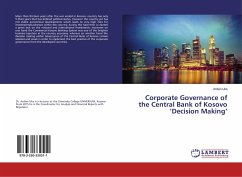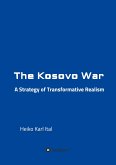In order to enhance the overall business environment and increase the trade, governments must engage in developing effective framework of monetary policies. With the adoption of the Euro in 2002, Kosovo delegated its monetary policy to European level leaders through the European Central Bank (ECB) and the European System of Central Banks (ESCB). This step was easily justified at the time of the introduction of the Euro, as until 1999 Kosovo was part of the former Yugoslav monetary system and used Dinar as its currency, which experienced high rate of inflation and instability, particularly during the 90s. The research analyzes the extent to which Euroization has affected the business sector development of Kosovo.
Hinweis: Dieser Artikel kann nur an eine deutsche Lieferadresse ausgeliefert werden.
Hinweis: Dieser Artikel kann nur an eine deutsche Lieferadresse ausgeliefert werden.








